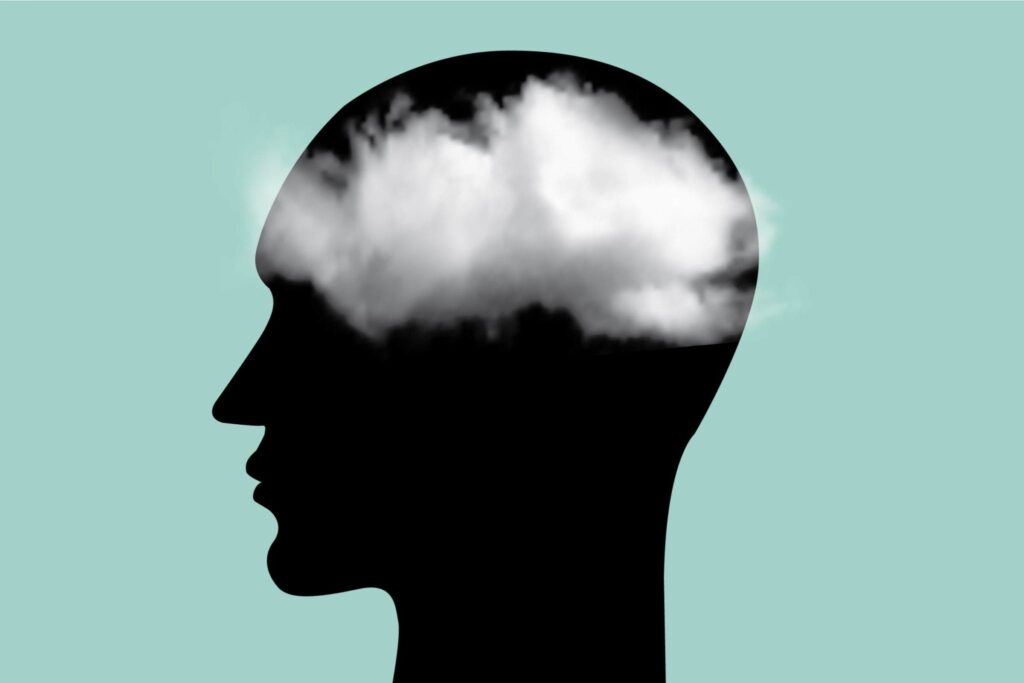
By: Dr. Keith Darrow, PhD, CCC-A
Brain fog is a term used to describe a state of mental confusion, forgetfulness, and lack of focus. It can feel like a cloud is obstructing your thoughts, making it difficult to process information efficiently. While occasional cognitive lapses are normal, persistent brain fog may indicate underlying issues related to diet, lifestyle, and overall health.
Each month, I do my best to share something relevant about the relationship between diet and cognitive health. My published cookbook, Healthy Food Healthy Brain, is your definitive guide to doing more to ensure you stay mentally, physically and cognitively healthy by eating the right foods and making sure you feed your brain the very best, every day, every meal. This includes eating the right foods to help combat cognitive decline. This month, let’s talk a little about brain fog. We all get it, right?!
A little-known fact about brain fog is that it can be linked to gut health. The gut and brain communicate through the gut-brain axis, and imbalances in gut bacteria (dysbiosis) can lead to inflammation and neurochemical disruptions that contribute to cognitive issues. This means that probiotics and a diet rich in fiber can play a key role in improving mental clarity.
Nutrition plays a crucial role in brain function. The foods we consume directly impact neurotransmitter activity, inflammation levels, and energy metabolism, all of which contribute to cognitive performance. Poor dietary habits can lead to nutritional deficiencies, blood sugar imbalances, and systemic inflammation, exacerbating brain fog.
Key Dietary Culprits of Brain Fog
- Sugar and Refined Carbohydrates – Excessive sugar consumption leads to rapid spikes and crashes in blood glucose levels, which can cause mental fatigue and difficulty concentrating. Now, that’s not to say that we can never have a sweet treat. Everything in moderation.
- Highly Processed Foods – These often contain artificial additives, trans fats, and preservatives that contribute to inflammation and negatively impact brain health. Stick to all natural, healthier food, and avoid brain fog altogether. You’ll be surprised how quickly your body becomes used to eating healthy and the cravings for junk will disappear.
- Food Sensitivities – Common allergens like gluten, dairy, and soy can trigger inflammation and immune responses that affect cognitive clarity.
- Dehydration – Even mild dehydration can reduce oxygen flow to the brain, impairing cognitive function and increasing fatigue. Drink that H2O!
- Excess Alcohol and Caffeine – While caffeine can enhance focus in moderation, excessive intake can lead to energy crashes. Alcohol, on the other hand, disrupts neurotransmitter balance and sleep quality, worsening brain fog.
Nutrients That Support Mental Clarity
To combat brain fog and enhance cognitive function, incorporating nutrient-dense foods is essential:
- Omega-3 Fatty Acids (found in salmon, walnuts, and flaxseeds) support brain cell communication and reduce inflammation.
- Antioxidants (found in berries, dark leafy greens, and turmeric) protect against oxidative stress that contributes to cognitive decline.
- B Vitamins (found in eggs, legumes, and whole grains) are vital for neurotransmitter function and energy production.
- Magnesium (found in nuts, seeds, and dark chocolate) helps regulate brain activity and stress response.
- Probiotics (found in yogurt, kimchi, and sauerkraut) promote gut health, which is closely linked to brain function.
Other lifestyle factors that greatly influence cognitive function beyond diet include regular exercise, quality sleep, and stress management.
The bottom line - brain fog is often a symptom of dietary imbalances and lifestyle factors rather than an isolated condition. By making mindful food choices, staying hydrated, and adopting brain-supportive habits, you can enhance cognitive function and mental clarity. Prioritizing whole, nutrient-dense foods and eliminating dietary triggers can make a profound difference in your overall brain health.
As I bring you essential information each month about the connection between eating healthy and long term overall active aging, it is important to keep in mind that the number one way to potentially prevent dementia and cognitive decline is to FIRST TREAT YOUR HEARING LOSS!
Please remember this month and every month to treat your hearing loss and tinnitus and feed your brain for optimal performance.
To learn more about brain fog and cognitive health, please visit – www.excellenceinaudiology.org.




















